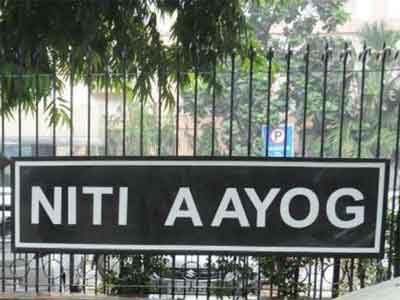- Home
- Medical news & Guidelines
- Anesthesiology
- Cardiology and CTVS
- Critical Care
- Dentistry
- Dermatology
- Diabetes and Endocrinology
- ENT
- Gastroenterology
- Medicine
- Nephrology
- Neurology
- Obstretics-Gynaecology
- Oncology
- Ophthalmology
- Orthopaedics
- Pediatrics-Neonatology
- Psychiatry
- Pulmonology
- Radiology
- Surgery
- Urology
- Laboratory Medicine
- Diet
- Nursing
- Paramedical
- Physiotherapy
- Health news
- Fact Check
- Bone Health Fact Check
- Brain Health Fact Check
- Cancer Related Fact Check
- Child Care Fact Check
- Dental and oral health fact check
- Diabetes and metabolic health fact check
- Diet and Nutrition Fact Check
- Eye and ENT Care Fact Check
- Fitness fact check
- Gut health fact check
- Heart health fact check
- Kidney health fact check
- Medical education fact check
- Men's health fact check
- Respiratory fact check
- Skin and hair care fact check
- Vaccine and Immunization fact check
- Women's health fact check
- AYUSH
- State News
- Andaman and Nicobar Islands
- Andhra Pradesh
- Arunachal Pradesh
- Assam
- Bihar
- Chandigarh
- Chattisgarh
- Dadra and Nagar Haveli
- Daman and Diu
- Delhi
- Goa
- Gujarat
- Haryana
- Himachal Pradesh
- Jammu & Kashmir
- Jharkhand
- Karnataka
- Kerala
- Ladakh
- Lakshadweep
- Madhya Pradesh
- Maharashtra
- Manipur
- Meghalaya
- Mizoram
- Nagaland
- Odisha
- Puducherry
- Punjab
- Rajasthan
- Sikkim
- Tamil Nadu
- Telangana
- Tripura
- Uttar Pradesh
- Uttrakhand
- West Bengal
- Medical Education
- Industry
NITI Aayog's SATH initiative to enhance India's education, healthcare

New Delhi: Aiming to initiate development in the country's education and healthcare sectors, the NITI Aayog, in association with McKinsey & Company and IPE consortium, launched its 'Sustainable Action for Transforming Human capital' or 'SATH' program in collaboration with the state governments, with a vision to improve cooperative federalism.
SATH aims to identify and build three future 'role model' states for health systems. NITI will in close collaboration with their state machinery to design a robust roadmap of intervention, develop a program governance structure, set up monitoring and tracking mechanisms, hand-hold state institutions through the execution stage and provide support on a range of institution measures to achieve the end objectives.
To select the three model states, NITI defined a three-stage process – expression of interest, presentations by the states and assessment of commitment to health sector reforms.
Sixteen states expressed prima facie interest, of which fourteen made their proposal to a Committee headed by NITI Aayog CEO Amitabh Kant and Bibek Debroy, member of NITI Aayog.
Metrics such as MMR, IMR, incidence of malaria and others have been considered for determining potential impact while density of doctors and nurses, compliance to IPHS norms are some of the metrics used to determine likelihood of success.
The program will be launched in the three selected states after the signing of MoUs.


